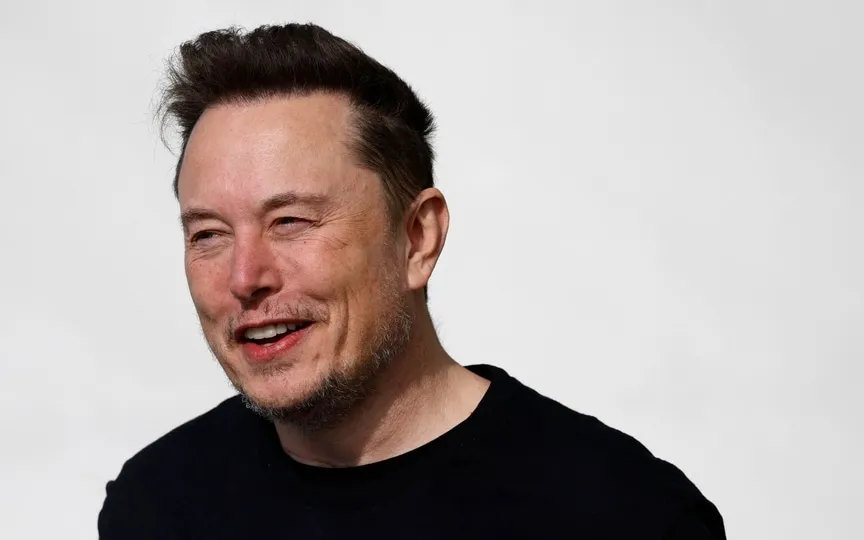Elon Musk’s visit to India to discuss Starlink approvals, Tesla factories, and other topics
Tech billionaire Elon Musk is planning a visit to India as his companies look to expand into the country, which is the world’s most populous nation. Tesla, his electric car company, is reportedly exploring potential factory sites in India as sales in the United States decline.
Another Musk-owned company, satellite internet operator Starlink, is receiving preliminary approvals to operate in India, a government source told AFP.
Also on the “free speech” agenda of what is likely to be a free speech absolutist is the large number of content removal orders the Indian government is imposing on X, the social media platform it took over in 2022.
“Looking forward to meeting Prime Minister Narendra Modi in India!” Musk wrote about X last week without giving a date for the visit.
According to Indian media, the trip will start as soon as Sunday and last for two days, after months of aggressive courtship between the billionaire and Modi.
The two met last June in New York, after which Musk said Modi had pushed the entrepreneur to “make significant investments in India” – something he said his companies planned to do.
Tesla is currently battling increasing competition from China and falling demand in the US, with reports claiming the company is looking to cut its workforce.
Musk, who has described himself as a Modi fan, also said India “has more promise than any major country in the world.”
But India often struggles to attract foreign direct investment, even as multinationals seek alternatives to China, and Musk’s admiration has yet to translate into multibillion-dollar commitments.
India’s steep electric vehicle import taxes — Musk once complained they were among the “highest in the world” — have prevented Tesla from making inroads without local manufacturing.
And in 2021, the Ministry of Communications issued a rare public reprimand to Starlink when it alleged that the company had begun “pre-selling” its services in India without a license.
– Red carpet –
This year, however, the government has eased regulations in hopes of attracting more foreign investment ahead of the six-week national election starting Friday.
Last month, it reduced import taxes on electric vehicles for global automakers that pledged to invest $500 million and start local production within three years.
The new policy will allow companies to import up to 8,000 electric cars each year at a price of at least $35,000 with import duties of 15 percent.
The Financial Times reported earlier this month that Tesla would send a team to at least three states to investigate the factory.
Indian media have reported that Tesla is looking to import cars from its Berlin factory first until it makes a final decision on setting up a production line.
Experts say the Indian market is unlikely to be an immediate blow to the company, mainly due to the high price of its cars.
Tesla’s cheapest model right now is the Model 3 sedan, which retails for around $39,000 in the US.
“Cars priced above ₹20 lakh ($23,900) have only a five percent market share in India,” Soumen Mandal, senior analyst at market research firm Counterpoint, told AFP.
However, he added that Tesla would aim to position itself at an inflection point where demand increases as disposable income rises and the cost of producing electric vehicles falls.
Counterpoint predicts that the share of electric vehicles in all car sales will rise from two percent last year to almost 30 percent by 2030.
– Publishing battles –
Musk’s current business interest in India is limited to his legacy – social media platform X, formerly Twitter.
He is continuing a legal battle that preceded his ownership to challenge takedown orders mandating the removal of Tweets and accounts critical of the Modi government.
India, where press freedoms have declined sharply since Modi took office a decade ago, appeals to X to remove content more than almost any other country.
Former X boss Jack Dorsey claimed last year that government officials threatened to shut down the platform in India unless it acceded to their demands – a claim that Information Technology Minister Rajeev Chandrasekhar said was “an outright lie”.
Under its new owner, X is appealing last year’s court ruling that obliges the platform to comply with the authorities’ demands.
But Musk has been vocal about the constraints the company faces in India.
“The rules in India about what can be seen on social media are quite strict and we cannot go beyond the laws,” he told a BBC reporter last year.
“If we have a choice between people going to jail or following the laws, we will follow the laws.”




